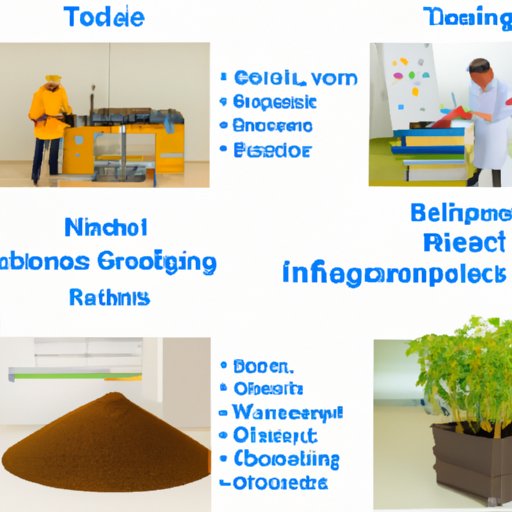Overview of Horticulture Science
Horticulture science is a branch of agriculture that focuses on the cultivation and study of plants. It is an interdisciplinary field that combines elements of plant biology, ecology, soil science, genetics, and agronomy to develop sustainable and efficient methods of growing and managing plants. The goal of horticulture science is to produce healthy plants that can be used for ornamental purposes, food production, or other commercial uses.
Horticulture science is divided into two main branches: pomology and olericulture. Pomology is the science of fruit and nut production, while olericulture is the science of vegetable production. Within each branch, there are several sub-disciplines such as plant breeding, plant physiology, plant pathology, and plant biotechnology.
Careers in Horticulture Science
Horticulture science offers a variety of career opportunities, including research, teaching, and consulting. Professionals in this field work in research institutes, universities, government agencies, and private companies. They may also work in nurseries, greenhouses, and landscaping businesses.
To pursue a career in horticulture science, individuals must have a combination of educational background, experience, and technical skills. A degree in horticulture science, plant science, or related fields is preferred. Additionally, some employers require applicants to have experience in plant propagation, plant nutrition, pest management, and other areas.
Benefits of Horticulture Science
Horticulture science has numerous environmental and economic benefits. On the environmental side, it helps to conserve natural resources, reduce pollution, improve air quality, and restore degraded ecosystems. It also increases biodiversity by providing habitats for native plants and animals.
Economically, horticulture science can help to create jobs, increase crop yields, reduce food waste, and improve food security. According to a study conducted by the World Bank, investing in horticultural activities has been shown to boost economic growth, reduce poverty, and improve nutrition and health outcomes.

Historical Development of Horticulture Science
The history of horticulture science dates back to ancient times when humans began cultivating plants for food, medicine, and other purposes. Over time, the practice of horticulture has evolved from simple methods of harvesting and cultivating crops to more advanced techniques such as grafting and hybridization.
In the modern era, horticulture science has made significant advances in the development of new varieties of plants and improved methods of cultivation. Genetic engineering and biotechnology have enabled scientists to create more efficient and productive plants with higher yields and better disease resistance.
Current Trends and Challenges in Horticulture Science
Horticulture science is constantly evolving to meet the changing needs of society. Current trends include the use of hydroponics, aquaponics, and vertical farming to produce food in urban areas; the use of robotics and automation to improve efficiency; and the development of more sustainable practices such as organic farming and permaculture.
The horticulture science industry also faces several challenges, including climate change, water scarcity, soil degradation, and pests and diseases. To address these issues, researchers are developing new pesticides and fertilizers, improving irrigation systems, and exploring alternative methods of crop production.
(Note: Is this article not meeting your expectations? Do you have knowledge or insights to share? Unlock new opportunities and expand your reach by joining our authors team. Click Registration to join us and share your expertise with our readers.)
